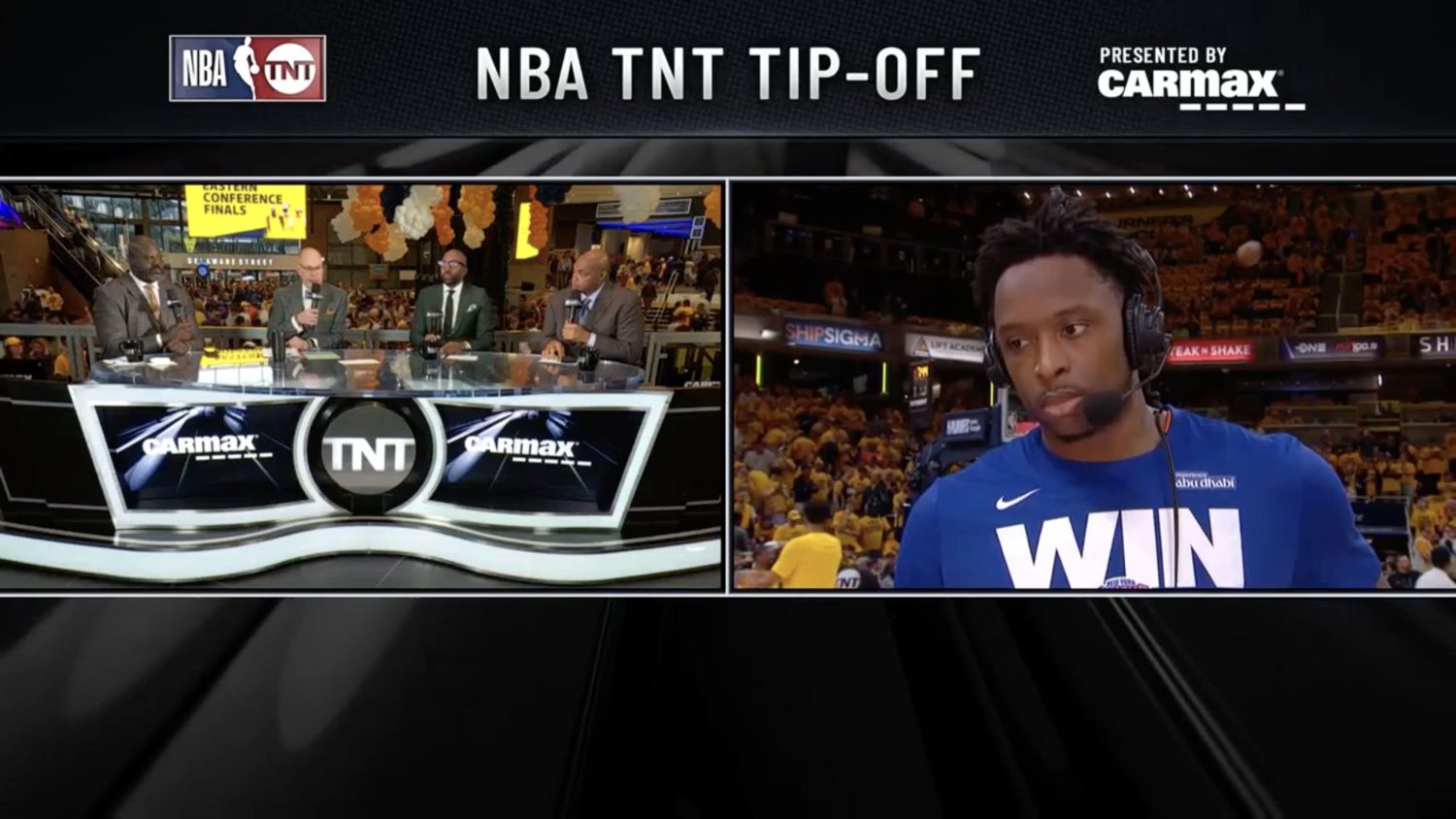The dynamics of sports broadcasting are constantly evolving, with networks seeking new ways to engage viewers and provide deeper insights into the game. However, not all traditions are embraced by everyone involved. TNT’s pregame interviews, a staple of their NBA coverage, have recently come under scrutiny from two of the network’s own analysts: Kenny Smith and Charles Barkley. These seasoned veterans have openly expressed their reservations about the value and impact of these interviews, particularly on the players themselves. This article delves into their perspectives, exploring why they believe pregame interviews can be more detrimental than beneficial, and examining the broader implications for sports journalism.
The Players’ Perspective
Charles Barkley and Kenny Smith have both voiced strong opinions against pregame interviews, drawing from their own experiences as former NBA players. They argue that these interviews often place unnecessary pressure on athletes right before a crucial game. Barkley, known for his candid remarks, stated he would never want to be subjected to such a situation, emphasizing the mental preparation required before a game. Smith echoed this sentiment, pointing out that a player’s focus should be entirely on the upcoming competition, not on answering questions for the media.
“That is a tough time to do an interview,” Smith said, highlighting the potential for distraction and disruption to a player’s pregame routine. Their concerns are rooted in the belief that any deviation from a player’s mental and physical preparation can negatively impact their performance. The pressure to provide insightful or entertaining answers can add an extra layer of stress, which is the last thing a player needs before stepping onto the court.
The OG Anunoby Interview
A recent example that sparked this discussion was an interview with New York Knicks forward OG Anunoby before Game 4 of the Eastern Conference Finals. Anunoby agreed to a brief Q&A with the TNT crew, but Smith admitted he hesitated to ask a question, fearing it might disrupt Anunoby’s focus. Smith referenced a previous interview with Mitchell Robinson, where Robinson had a standout performance after speaking with the TNT analysts, hoping for a similar outcome for Anunoby.
However, Smith’s reluctance underscores the inherent awkwardness of pregame interviews. As he put it, he didn’t want to be the guy who messes up Anunoby’s head before such an important game. This moment highlights the fine line broadcasters must walk between providing content and potentially interfering with an athlete’s performance. The pressure on Anunoby was palpable, with the Knicks trailing in the series and facing a hostile crowd in Indiana.
Shaquille O’Neal’s Agreement
Adding another layer to the conversation, Shaquille O’Neal also weighed in, expressing his agreement with Barkley and Smith. O’Neal stated definitively that he would never participate in a pregame interview as a player. His reasoning was straightforward: a poor performance after doing an interview would open him up to criticism for not being properly prepared.
O’Neal’s perspective brings up a crucial point about accountability and perception. Players are constantly under scrutiny, and any misstep, whether on or off the court, can be magnified by the media. By avoiding pregame interviews, players can minimize the risk of creating unnecessary distractions and maintain control over their public image. This stance reflects a broader trend among athletes who are increasingly protective of their time and mental space.
Ernie Johnson’s Counterpoint
Not everyone on the TNT set shared the same skepticism about pregame interviews. Ernie Johnson, the show’s host, offered a more balanced perspective, noting that some players are comfortable with and even enjoy doing pregame interviews. Johnson argued that it’s not a one-size-fits-all situation and that some players thrive on the energy and attention.
Johnson’s viewpoint acknowledges the diversity of personalities and preferences within the NBA. While some players may find pregame interviews intrusive, others may see them as an opportunity to connect with fans and promote their personal brand. This highlights the importance of understanding individual player dynamics and tailoring media interactions accordingly. However, it’s difficult to ignore that TNT pays his salary. As it turns out, even if Anunoby had a poor performance, it’s unlikely Ernie would call him out on that as the reason.
The Outcome of the Interview
In the case of OG Anunoby, his pregame interview didn’t seem to have a detrimental effect on his performance. Despite the Knicks losing Game 4, Anunoby had his best offensive showing of the series, even though his three-point shooting was off. This suggests that while pregame interviews may not be ideal for every player, some athletes can compartmentalize the experience and still perform at a high level.
Anunoby’s ability to focus despite the pregame media engagement speaks to his mental fortitude and professionalism. However, it’s essential to recognize that every player is different, and what works for one may not work for another. The challenge for broadcasters is to be mindful of these individual differences and avoid imposing a uniform approach to media interactions.
Conclusion
The debate surrounding TNT’s pregame interviews highlights the complex relationship between athletes, the media, and the broadcasting industry. While Charles Barkley and Kenny Smith raise valid concerns about the potential for distraction and pressure, Ernie Johnson points out that some players find value in these interactions. The key takeaway is the need for a nuanced approach that respects individual player preferences and avoids a one-size-fits-all mentality. As sports broadcasting continues to evolve, it’s crucial to prioritize the well-being and mental state of the athletes who are at the heart of the game. Understanding these dynamics helps broadcasters, like those at FYM News, to strike a balance between content creation and player welfare, ultimately enhancing the viewing experience for fans while protecting the integrity of the game.

Leave a Reply